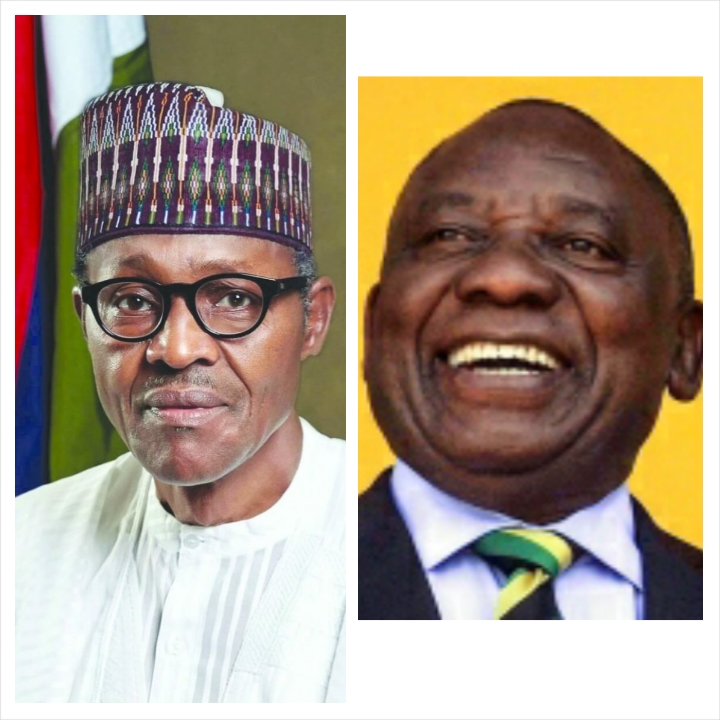Nigeria and South Africa- two largest economies in Africa- withheld their consent while 44 countries agreed to a $3 trillion continental free-trade zone encompassing 1.2 billion people.
The African Union (AU) in 2015 moved to establish a 55-nation bloc, African Continental Free Trade Area (AfCFTA), expected to be the biggest in the world by member states, in a bid to increase intra-regional trade.
However, President Muhammadu Buhari Wednesday said his administration will not be in a hurry to enter into any agreement that would make the country a dumping ground and jeopardize the security of the nation.
Consequently, the President set up a committee to review the Continental Free Trade Area, CFTA, framework agreement which was signed in Kigali, Rwanda, yesterday by some African countries.
Buhari had, Saturday, cancelled Nigeria’s participation in the signing of the agreement framework, even when some of members of the nation’s delegation had arrived Kigali for the meeting.
Nigeria pulled out at the last minute due to pressure on government from stakeholders that they were not adequately consulted on the agreement.
Others staying out of the bloc were Botswana, Lesotho, Namibia, Zambia, Burundi, Eritrea, Benin, Sierra Leone and Guinea Bissau. It was not immediately clear why South Africa stayed on the sidelines.
Earlier, Rwandan president Paul Kagame, host of an African Union (AU) summit, had called to conclude the initial negotiations, and declared the meeting a success after 44 African nations signed up to establish the free trade bloc within 18 months.
The project needed a minimum of 22 countries signing up to get off the ground and Kagame hailed the effort so far.
“It would have been great if the two biggest economies on the continent, Nigeria and South Africa, had signed, but the most important is that the rest of the continent is sending a right message to these two biggest economies that we are moving ahead without you. What is at stake is the dignity and well-being of Africa’s farmers, workers and entrepreneurs,” said Michael Kottoh, an analyst at Confidential Strategies in Ghana.
Reacting to Nigeria’s withheld consent to the agreement, Dr. Frank Jacobs, President of Manufacturers Association of Nigeria (MAN), said the agreement, in its present form, would have put Nigeria’s manufacturing sector and the economy in general at a gross disadvantage against other countries.
At a press briefing, Wednesday, in Lagos, Jacobs called on government to convene a special meeting of relevant stakeholders, including experts on trade policy, to quickly review the text of the draft agreement to reflect Nigeria’s national interest.
“We are at a great disadvantage to many countries in the continent in terms of infrastructure such as inadequate power, bad roads, and inefficient rail services.
”Though we acknowledge that government has scaled up intervention in infrastructural development, as evidenced in devoting more funds to capital projects in the 2018 budget, until we achieve appreciable progress in this regard, we would be competing at an unfair advantage. ”We recommended that government should back out because there was no adequate and proper consultation.
”Ideally, we had expected that we would be carried along, because some critical concerns that would have been addressed during negotiations were not adequately addressed. It is important to address the concern of the private sector during the negotiations,” Jacobs said.
Briefing State House correspondents after the Federal Executive Council, FEC, meeting presided over by the President at the Council Chambers, Presidential Villa Abuja, Femi Adesina, the Special Adviser to the President on Media and Publicity, said it was expected that the Minister of Labour would call for a stakeholders meeting with the labour movement to brainstorm on the implications of the CFTA framework agreement.
Adesina said: “The explanation from the President which the FEC bought was that he would not want to agree to anything that would hinder local entrepreneurs, and on the surface, except if proven wrong, is that that agreement has the capacity to affect local entrepreneurship.
“Then he also said that anything that could encourage the dumping of finished goods in Nigeria was going to be contrary to our interest. So, it is one of the reasons he declined. Then he said the country is yet to fully understand the economic and security implications of the agreement.
“So, there has to be further consultations with different stakeholders and the final position was that a committee be set up to meet and review the contents of that proposal and they will do it within two weeks and get back to the Federal Executive Council.
”The committee, which has two weeks to submit its report, will be expected to look at the security implications of the agreement.”
Adesina said members of the committee include the ministries and agencies of Finance, Budget and Economic Planning, Labour and Employment, Foreign Affairs as well as Science and Technology.
According to him, the agencies include Federal Inland Revenue Services, the Central Bank of Nigeria, Customs and Immigration.
”So, they will constitute the committee that will look into the proposals that are contained in the Continental Free Trade Area and brief the Federal Executive Council in two weeks,” Adesina said.
Subscribe to Updates
Get the latest creative news from FooBar about art, design and business.
Trending
- Three Persons Lose Lives in Akwa Ibom Crash
- 613 New ASPs in Akwa Ibom Urged to embrace Professionalism, Rule of Law
- Four Students Go for Master’s degree in UK, Courtesy of Rep Idem
- US Democratic Presidential Candidate and Civil Rights Campaigner Dies
- Akwa Ibom, Cross River Spar over control of 76 Oil wells
- Gov Sani Hails Obaigbena On LekeeLekee App Launch
- FG Sues El-Rufai over alleged interception of Ribadu’s phone communications
- Kidnap victim rescued in Nsit Ibom as Police intensify Manhunt for Abductors

